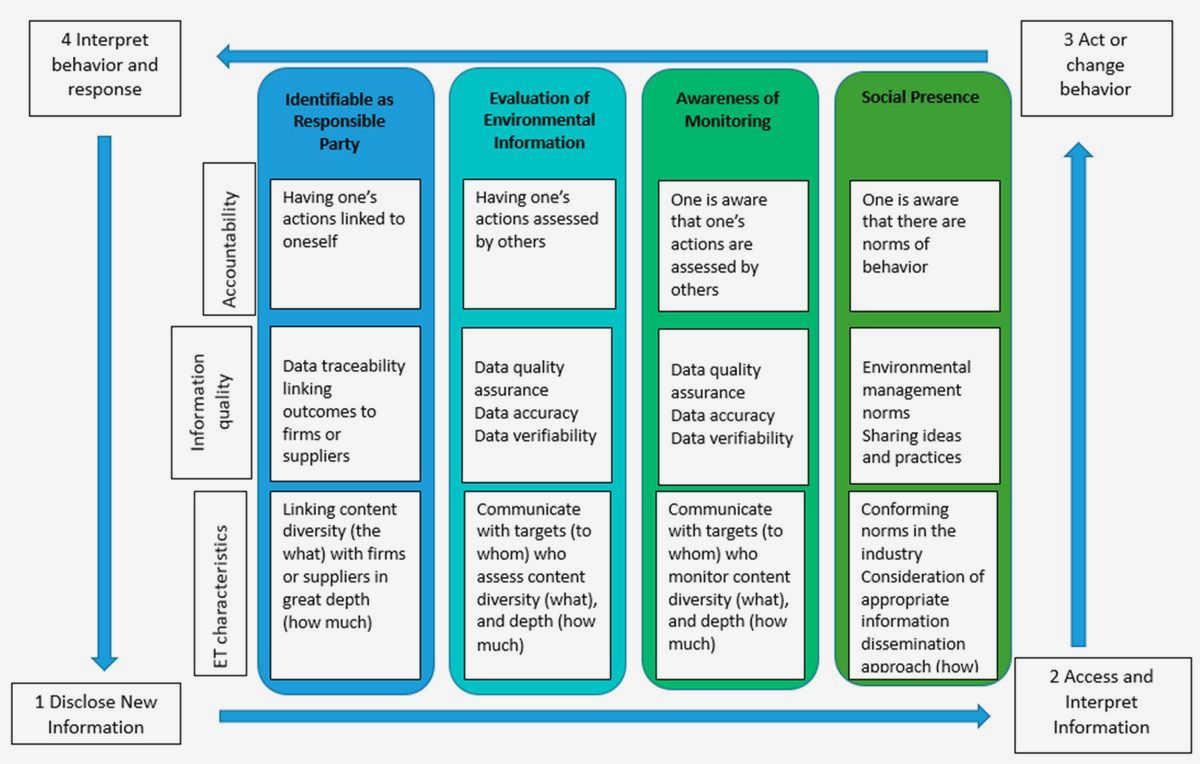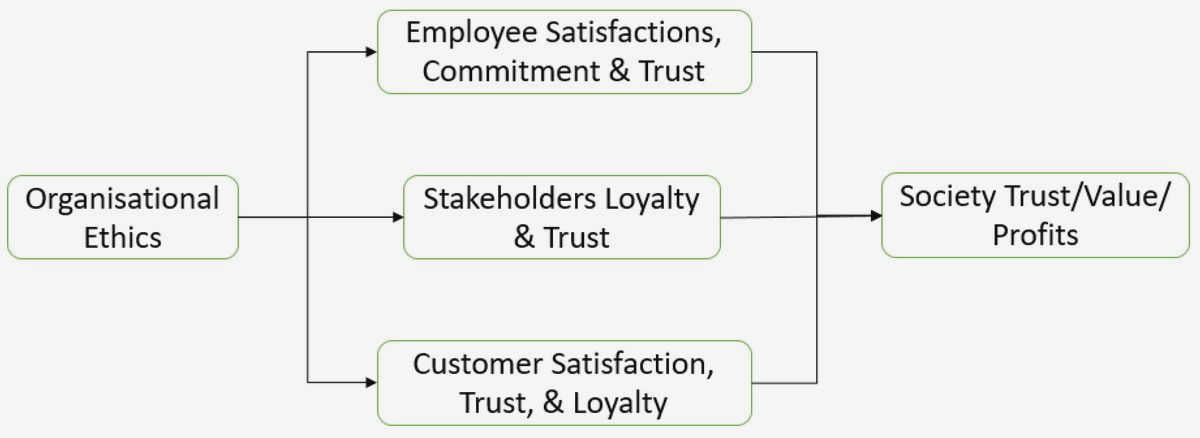The relationship between business and society is a complex and multi-faceted one. In recent years, the importance of trust and transparency in business practices has become increasingly evident. As the global economy continues to evolve and companies operate on an international scale, there is a growing recognition that ethical behavior is not just a moral imperative, but also a strategic necessity for long-term success.
Civil society, which encompasses non-governmental organizations, community groups, and individuals outside of the government and business sectors, plays a crucial role in promoting and ensuring ethical business practices. Civil society acts as a watchdog, holding businesses accountable for their actions and advocating for greater transparency. By engaging in public discourse, conducting research, and raising awareness, civil society organizations push for policies and practices that promote ethical behavior and foster a culture of trust.
One of the key contributions of civil society in promoting ethical business practices is its ability to provide an independent and objective perspective. While businesses may have their own internal mechanisms for monitoring and ensuring ethical conduct, civil society acts as an external check, providing an unbiased assessment and holding businesses to account. This is particularly important in cases where businesses may have a conflict of interest or may be tempted to put profits ahead of ethical considerations. Civil society plays a vital role in uncovering and exposing such unethical behavior, raising public awareness, and applying pressure to drive change.

The Importance of Trust in Business Relationships
Trust plays a crucial role in building successful business relationships. It forms the foundation for effective communication, collaboration, and cooperation between businesses. Without trust, partnerships and collaborations can quickly break down, leading to missed opportunities and damaged reputations.
When there is trust between businesses, it fosters a sense of security and reliability. It allows companies to rely on each other’s promises and commitments, knowing that they will be fulfilled. This trust enables businesses to engage in long-term partnerships and strategic alliances, maximizing their mutual benefits and opportunities for growth.
Trust also enhances transparency in business relationships. When there is trust, companies are more likely to be open and honest with each other. They are willing to share information, insights, and resources, leading to better decision-making and problem-solving. Trust encourages businesses to be accountable and uphold ethical practices, creating a more sustainable and responsible business environment.
Furthermore, trust is essential for building a positive reputation in the business community. When companies consistently demonstrate trustworthiness and integrity in their relationships, they earn the respect and confidence of their peers and stakeholders. This reputation for trustworthiness can attract new business opportunities, customers, and investors who value ethical and transparent business practices.
In summary, trust is a critical asset in business relationships. It enables effective communication, cooperation, and collaboration, fostering long-term partnerships and mutual growth. Trust also promotes transparency and accountability, contributing to a positive reputation and attracting new opportunities. Emphasizing trust in business relationships is essential for promoting ethical and sustainable business practices.
Transparency as a Key Component of Ethical Business Practices
Transparency is an essential element of ethical business practices, as it involves openness, honesty, and clear communication between businesses and their stakeholders. When organizations are transparent, they provide information and make decisions in a way that is easily accessible, understandable, and accountable to their stakeholders.

Transparency fosters trust: By being transparent, businesses build trust with their stakeholders, including customers, employees, investors, and the wider community. When businesses openly communicate their practices, policies, and financial information, stakeholders can make informed decisions and have confidence in the organization’s operations.
Transparency promotes accountability: When businesses are transparent, they hold themselves accountable for their actions. They take responsibility for their decisions and practices and are willing to address any issues or concerns that arise. This accountability allows stakeholders to have confidence that the business is operating ethically and in their best interests.
Transparency enhances competitiveness: Transparency can provide businesses with a competitive advantage. Organizations that are transparent about their ethical practices and values can attract customers who prioritize transparency and accountability. Additionally, transparent organizations are more likely to attract and retain top talent, as employees value working for a company that operates with integrity and openness.
Transparency improves decision-making: When businesses are transparent, they provide stakeholders with the information they need to make informed decisions. This includes financial information, business practices, and the impact of the business on the environment and society. By having access to this information, stakeholders can evaluate the ethical implications of supporting or engaging with the business.
Transparency builds a positive reputation: Businesses that are transparent and operate ethically often build a positive reputation in the marketplace. This reputation can lead to increased customer loyalty, positive word-of-mouth recommendations, and stronger relationships with stakeholders. A positive reputation can also help businesses navigate potential reputational risks more effectively.
In conclusion, transparency is a key component of ethical business practices. It fosters trust, promotes accountability, enhances competitiveness, improves decision-making, and builds a positive reputation. Organizations that prioritize transparency demonstrate their commitment to ethical values and gain the support and trust of their stakeholders.
The Role of Civil Society Organizations in Promoting Trust and Transparency
Civil society organizations play a crucial role in promoting trust and transparency in business practices. These organizations act as watchdogs, monitoring the actions of businesses and holding them accountable for their ethical conduct. Through their advocacy and research, civil society organizations expose unethical practices and push for greater transparency in the corporate sector.
One of the key roles of civil society organizations is to bridge the gap between businesses and the public. They act as intermediaries, providing information and educating the public about unethical business practices. Through their campaigns and outreach programs, civil society organizations aim to increase public awareness and promote consumer empowerment.
Civil society organizations also have an important role in promoting accountability and good governance in the corporate sector. They advocate for the implementation of robust regulations and policies that ensure transparency and prevent corruption. By engaging with governmental bodies and international institutions, civil society organizations work towards creating a level playing field for businesses and promoting fair and ethical practices.
In addition, civil society organizations often collaborate with other stakeholders, such as labor unions, NGOs, and academic institutions, to promote trust and transparency in business. Through their collective efforts, these organizations can have a greater impact on influencing business practices and advocating for ethical conduct.
Furthermore, civil society organizations can provide a platform for dialogue and collaboration between businesses and the public. By facilitating discussions and promoting transparency, these organizations can help build trust between stakeholders and foster a culture of ethical business practices.
In conclusion, civil society organizations play a vital role in promoting trust and transparency in business. From monitoring and holding businesses accountable to advocating for regulatory reforms, these organizations are instrumental in shaping ethical conduct and ensuring the sustainability of our economic systems.
Advocating for Corporate Social Responsibility
What is Corporate Social Responsibility?
Corporate Social Responsibility (CSR) is a concept that refers to the efforts made by businesses to positively contribute to the society and the environment in which they operate. It encompasses a wide range of activities, such as ethical sourcing, employee well-being, environmental sustainability, and community engagement.
The Role of Civil Society in Advocating for CSR
Civil society, including non-governmental organizations (NGOs), social enterprises, and consumer groups, plays a crucial role in advocating for corporate social responsibility. They act as watchdogs, holding businesses accountable for their actions and pushing for greater transparency and ethical practices.
Through research, advocacy campaigns, and direct engagement with businesses, civil society organizations raise awareness about the importance of CSR and its impact on communities and the environment. They push for changes in corporate policies and practices, encouraging companies to adopt sustainable and responsible business practices.

Benefits of Advocating for CSR
Advocating for corporate social responsibility brings numerous benefits to society, businesses, and the environment. By promoting ethical business practices, civil society organizations contribute to building trust between businesses and the public, enhancing their reputation and brand value.
Furthermore, CSR practices can lead to improvements in employee satisfaction and retention rates by fostering a positive work environment. Companies that prioritize CSR also tend to attract more socially conscious consumers, thereby increasing their customer base and revenue.
Challenges and Opportunities
While advocating for corporate social responsibility is crucial, there are challenges that civil society organizations face. They often encounter resistance from businesses that prioritize profit over social and environmental considerations. Additionally, the lack of standardized metrics for measuring CSR performance makes it challenging to assess and compare companies’ efforts.
However, these challenges also present opportunities for civil society organizations to collaborate with businesses and governments in developing guidelines and frameworks for CSR. By working together, they can create a more sustainable and responsible business environment that benefits all stakeholders, including the society, the environment, and the businesses themselves.
Building Bridges Between Businesses and Communities
In order to promote ethical business practices, it is crucial for businesses to build strong and meaningful relationships with the communities in which they operate. By engaging with local communities, businesses can foster trust, transparency, and mutual understanding.
One way businesses can build bridges with communities is by actively involving community members in decision-making processes. This can be done through consultations, public forums, or community advisory groups. By including diverse perspectives and involving community members in the decision-making process, businesses can ensure that their actions are aligned with the needs and values of the community.
Another important aspect of building bridges between businesses and communities is through corporate social responsibility initiatives. By investing in projects that benefit the community, businesses can demonstrate their commitment to the well-being of the community beyond their profit-seeking goals. This can include initiatives such as education and training programs, environmental conservation projects, or support for local small businesses.
Transparency is also key in building trust between businesses and communities. Businesses should strive to provide clear and honest communication about their operations, including their environmental impact, labor practices, and supply chain. By being transparent, businesses can address any concerns or issues raised by the community and work towards finding mutually beneficial solutions.
In conclusion, building bridges between businesses and communities is essential for promoting ethical business practices. By engaging with the community, involving them in decision-making processes, investing in the community’s well-being, and being transparent, businesses can foster trust and mutual understanding. This will ultimately contribute to a more sustainable and ethical business environment.
Encouraging Stakeholder Engagement
Stakeholder engagement is a crucial aspect of promoting ethical business practices. By involving stakeholders in decision-making processes and keeping them informed about the company’s activities, businesses can foster trust and transparency. It is important for companies to reach out to stakeholders and create platforms for open dialogue and collaboration.
The role of civil society organizations
Civil society organizations play a key role in encouraging stakeholder engagement. These organizations act as intermediaries between businesses and stakeholders, representing the interests of the wider community. They can facilitate dialogue, provide a platform for stakeholders to voice their concerns, and advocate for transparency and accountability in business practices.
Engaging employees: Employees are one of the most important stakeholders in any organization. To encourage their engagement, businesses should create a culture of transparency and open communication. This can be achieved through regular team meetings, feedback sessions, and opportunities for employees to participate in decision-making processes. By involving employees in the company’s operations, businesses can gain valuable insights and build trust.
Involving customers: Customers are another vital stakeholder group. Companies can encourage their engagement by providing channels for feedback and actively seeking their input on products, services, and corporate practices. This can be done through surveys, focus groups, and online platforms. By involving customers in decision-making processes, businesses can ensure that their products and services meet the needs and expectations of their target audience.
Collaborating with communities: Engaging with local communities is essential for businesses that operate in specific geographical areas. By involving community representatives in decision-making processes, businesses can address community concerns and ensure that their operations have a positive impact. This can be done through regular meetings, community forums, and partnerships with local organizations.
Dialogue with investors: Investors play a crucial role in shaping the direction of a business. To encourage their engagement, companies should provide regular updates on financial performance, corporate governance practices, and sustainability initiatives. By demonstrating transparency and accountability to investors, businesses can build trust and attract investment.
Building relationships with suppliers: Suppliers are important stakeholders, as they can have a significant impact on a company’s ethical practices. To encourage their engagement, businesses should establish clear guidelines and expectations, conduct regular audits, and provide training on responsible sourcing. By building strong relationships with suppliers, businesses can ensure that their supply chain operates ethically.
In conclusion, encouraging stakeholder engagement is crucial for promoting ethical business practices. By involving stakeholders in decision-making processes and keeping them informed, businesses can build trust, transparency, and accountability. Civil society organizations, employees, customers, communities, investors, and suppliers all play an important role in this process. Through open dialogue, collaboration, and active engagement, businesses can create a more sustainable and responsible business environment.
Monitoring and Reporting Ethical Violations
Monitoring and reporting ethical violations is a crucial aspect of promoting ethical business practices. It is important to have systems in place that allow for the detection, investigation, and reporting of any unethical behavior within organizations. These systems can help ensure accountability and transparency, as well as protect the interests of stakeholders.
One way to monitor ethical violations is through regular audits and assessments. Organizations can conduct internal audits to review their ethical practices and identify any potential violations. These audits can be conducted by trained professionals or external third-party experts to ensure objectivity and thoroughness. Additionally, organizations can establish a whistleblower hotline or mechanism that allows employees and stakeholders to report any unethical behavior confidentially.
When ethical violations are detected, it is important to have a reporting mechanism in place. Reporting can be done through formal channels such as reporting to management, compliance departments, or ethics committees within the organization. It is essential to ensure that these reporting mechanisms are easily accessible, well-publicized, and provide protection to whistleblowers from retaliation.
In addition to internal reporting, external reporting is also important. Organizations can disclose their ethical practices and violations in their annual reports or sustainability reports. These reports can help build trust with stakeholders and demonstrate the organization’s commitment to ethical business practices. External reporting can also involve reporting to regulatory bodies, industry associations, or non-governmental organizations that monitor and promote ethical standards.
Overall, monitoring and reporting ethical violations helps create a culture of transparency, trust, and accountability in organizations. It encourages ethical behavior and discourages unethical practices. By having robust monitoring and reporting systems in place, organizations can ensure that ethical violations are detected, investigated, and addressed promptly and appropriately.

Advancing Fair Trade Practices
Fair trade practices are an important aspect of ethical business that promote fairness and sustainability. It is crucial for civil society to play an active role in advancing fair trade practices to ensure that businesses operate in a transparent and responsible manner.
1. Raising awareness: Civil society organizations can play a key role in raising awareness about the importance of fair trade practices. They can organize campaigns, events, and educational programs to educate consumers, businesses, and policymakers about the benefits of fair trade and its impact on communities, workers, and the environment.

2. Advocacy and policy reform: Civil society organizations can advocate for policies and reforms that promote fair trade practices. They can engage with governments and international organizations to push for the implementation of regulations and standards that ensure fair wages, safe working conditions, and environmental sustainability in business operations.
3. Certification and labeling: Civil society organizations can work towards establishing and promoting fair trade certification and labeling mechanisms. These initiatives can help consumers identify and choose products that have been produced under fair trade conditions, providing a market incentive for businesses to adopt fair trade practices.
4. Supporting fair trade businesses: Civil society organizations can provide support and resources to fair trade businesses, particularly small-scale producers and artisans. They can help facilitate access to markets, provide training and capacity-building support, and assist in networking and collaboration opportunities to strengthen the fair trade sector.
5. Transparency and accountability: Civil society organizations can promote transparency and accountability in business practices by advocating for increased disclosure and reporting requirements. They can encourage businesses to publish information about their supply chains, labor practices, and environmental impact, enabling consumers to make informed choices and hold companies accountable for their actions.
In conclusion, civil society plays a crucial role in advancing fair trade practices by raising awareness, advocating for policy reforms, promoting certification and labeling, supporting fair trade businesses, and promoting transparency and accountability. By working together, civil society and businesses can create a more ethical and sustainable business environment.
Educational Initiatives for Ethical Business Practices
Corporate Ethics Programs
One educational initiative for promoting ethical business practices is the implementation of corporate ethics programs. These programs provide employees with the necessary knowledge and skills to make ethical decisions in the workplace. They often include training sessions, workshops, and resources that address various ethical issues such as conflict of interest, bribery, and discrimination. Corporate ethics programs also encourage open communication and create a culture of transparency and accountability within the organization.
Business Ethics Courses
Offering business ethics courses in educational institutions is another important initiative for fostering ethical business practices. These courses provide students with an understanding of ethical principles and help them develop critical thinking and decision-making skills. Business ethics courses also explore real-life case studies and ethical dilemmas, allowing students to apply theoretical knowledge to practical situations. By educating future business leaders on ethical practices, these courses contribute to the development of a more responsible and ethical business environment.
Partnerships with Civil Society Organizations
Collaborating with civil society organizations is an effective way to promote ethical business practices. These organizations are often engaged in advocacy, research, and awareness-raising activities focused on ethical business conduct. By partnering with civil society organizations, businesses can tap into their expertise and knowledge to develop initiatives that address specific ethical challenges within their industry. This collaboration also helps build trust and fosters transparency between the business sector and civil society, creating a platform for dialogue and joint efforts towards ethical business practices.
Code of Conduct
Developing and implementing a comprehensive code of conduct is a key educational initiative for promoting ethical business practices. A code of conduct outlines expected behaviors, values, and ethical standards for employees and stakeholders. It provides guidelines for ethical decision-making and serves as a reference point for addressing ethical issues. Regular communication and training on the code of conduct ensure that all individuals within the organization are aware of their responsibilities and obligations. Codes of conduct also demonstrate a company’s commitment to ethical behavior and can enhance its reputation among customers, investors, and other stakeholders.
Ethics Training for Small and Medium-sized Enterprises
Recognizing the importance of ethical business practices in smaller organizations, initiatives that provide ethics training specifically tailored to small and medium-sized enterprises (SMEs) are essential. SMEs often face unique challenges in implementing ethical practices due to limited resources and capacity. Offering training programs that address these challenges can help SMEs understand the benefits of ethical conduct and provide them with practical tools and strategies for ethical decision-making. By empowering SMEs with the necessary knowledge and skills, these initiatives contribute to the overall promotion of ethical business practices across all sectors of the economy.
Collaborating for a Better Business Environment
In order to create a better business environment that promotes trust and transparency, it is crucial for different stakeholders to collaborate effectively. Civil society organizations play a crucial role in fostering ethical business practices, and they can achieve this by partnering with businesses, government bodies, and other relevant actors.
A key aspect of collaboration is establishing a platform for dialogue and exchange of ideas. Civil society organizations can organize forums, conferences, and roundtable discussions where representatives from various sectors can come together to discuss challenges, best practices, and potential solutions. These collaborative spaces provide an opportunity for different perspectives to be shared and for innovative ideas to emerge.
Collaboration also involves the development of partnerships and coalitions. Civil society organizations can work together with businesses to co-create initiatives and projects that promote ethical behavior in the business sector. By partnering with businesses, civil society organizations can leverage their expertise and resources to effectively influence business practices and drive positive change.
Furthermore, collaboration with government bodies is essential for creating an enabling regulatory environment. Civil society organizations can contribute valuable insights and expertise to the policymaking process, ensuring that regulations and legislation effectively address ethical business practices. By working closely with governments, civil society organizations can help shape an environment that encourages and rewards businesses for behaving ethically.
Collaboration should also extend to consumers and the general public. Civil society organizations can engage with and educate consumers on the importance of supporting businesses that prioritize ethics and transparency. By raising awareness and empowering consumers, civil society organizations can create a demand for ethical products and services, thereby incentivizing businesses to adopt and uphold ethical practices.
In conclusion, collaboration among different stakeholders is crucial for fostering a better business environment. Civil society organizations can play a pivotal role in facilitating this collaboration and promoting ethical business practices. By partnering with businesses, government bodies, and consumers, civil society organizations can create a collective force that drives positive change and promotes trust and transparency in the business sector.





